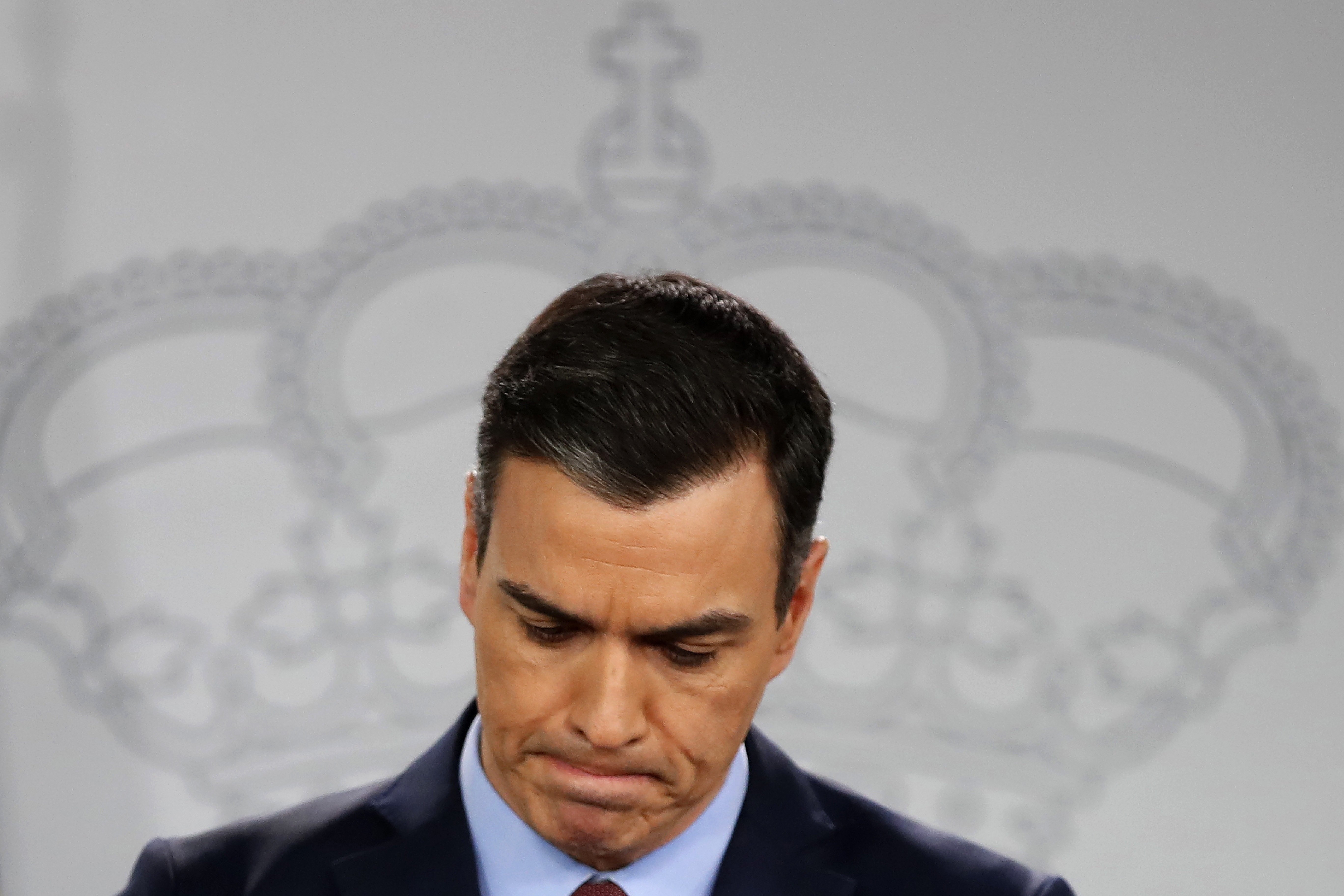Spain has declared a state of alarm for the next 15 days. In a solemn statement this Friday, prime minister Pedro Sánchez has announced this drastic and forceful emergency measure, to "slow down the coronavirus pandemic." It will come into effect from midnight on Friday but Sánchez said specific details of the scope of the decree would not be given until tomorrow Saturday. "It will be very hard and difficult, but we will stop the virus," he said.
This measure, set out in a 1981 Spanish law, allows the government possible powers ranging from control of transportation to the imposition of lockdowns and curfews, and can only be applied in cases of serious disruptions to normality. Specifically, the law contemplates four possible scenarios: catastrophes such as earthquakes, floods, fires or large-scale accidents; situations of scarcity of essential products; interruptions to essential public services; and health crises like the current situation.
During his institutional statement, the Spanish prime minister said that the worst was yet to come. And he put numbers on it. "In the next few weeks we could reach the figure of 10,000 people infected," he warned. Despite making the commitment to wage this battle in a way that "affects the public as little as possible", he cautioned that we are "only in the first phase of the fight against the virus" and "we have some very hard weeks ahead".
Consequences
The effects of today's announcement on the Spanish public depends on the intensity with which the Sánchez government wants to apply it, with the details to be finalized in a special cabinet meeting to be held on Saturday morning, which will serve to mobilize the Spanish state's resources, including military resources.
On paper, the law stipulates that the executive has the ability to control the free movement and ability to remain in any location of people and vehicles at certain times and places, to temporarily requisition goods, to occupy premises of any kind and to ration services and consumption of essential items.
The introduction of this decree would also suspend the elections called for 5th April in the Basque Country and Galicia.
The state of alarm is the least severe of three levels of emergency provided for in the Spanish constitution. The three possible levels are the states of alarm, exception and siege. The greater powers of a state of exception or a state of siege require the approval of parliament, and an extension to the state of alarm beyond the current two weeks would also have to be approved by parliament.
There is only one precedent for the application of such a measure. On 3rd and 4th December, 2010, José Luis Rodríguez Zapatero decreed a state of alarm in the wake of the crisis of air traffic controllers.
Spain has, according to the latest official count of the Spanish ministry of health, 4,209 cases of the Covid-19 coronavirus. A total of 120 people affected by the virus have died. In addition, 189 people have recovered and been given the medical all-clear.

